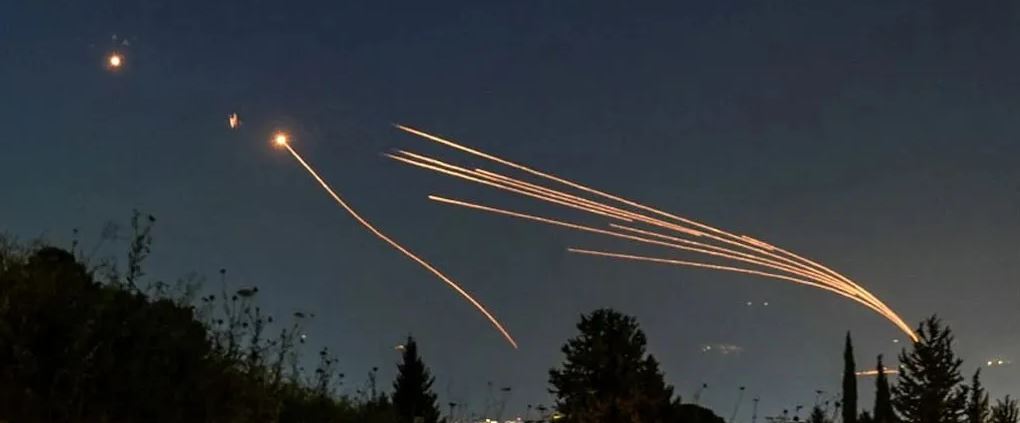Iran Press/Iran News: Regarding the time of Tehran's response to the Israeli regime following the assassination of Ismail Haniyeh, the head of the Hamas political bureau, the representative of the Islamic Republic of Iran to the United Nations announced that Iran's response would probably be in the time, conditions and in a way that the regime gives the least possibility.
The anxiety and mental confusion of the Zionists is increasing day by day due to Iran's sure response to the recent assassination of Ismail Haniyeh in Tehran, as well as the reaction of the Islamic resistance of Lebanon to the assassination of Fouad Shokr, one of the commanders of Hezbollah.
Following the martyrdom of Ismail Haniyeh and Fouad Shokr, the authorities and senior officials of the resistance axis announced that they would avenge the blood of these martyrs from the Zionist regime.
The Zionist Radio has admitted that after the assassination of Haniyeh, the Zionists are awaiting a response to this assassination operation.

Referring to the silence of the streets and the worries on the faces of every Zionist, Zionist Radio has described it as similar to the conditions of the COVID-19 period.
The Zionist media also talk about the disruption of crossings and airports, the cancellation of many flights, and the confusion of passengers.
The intelligence services of the Zionist regime are also trying to obtain the type, purpose, and time of the attack with the help of their allies.
Crises of the Zionist regime in the shadow of the war in the Gaza Strip
The economic, military, security, cyber, and intelligence fragility of the Zionist regime in the shadow of the response of the Islamic Republic of Iran, Lebanon's Hezbollah, and the axis of resistance to the recent terror operations in Tehran and Beirut has seriously worried the Zionists.
In addition to the military, security, intelligence, and cyber challenges, the Zionist regime suffers from economic problems as a result of the war especially the operations of the Yemeni armed forces in the Red Sea, the Indian Ocean, and the Arabian Sea. The crisis-hit economy of the Zionist regime has entered a new phase of chaos due to the Gaza war.
Today, noting the war in Gaza and the new maritime equation that Yemen has drawn against the Zionist regime, no ship from the origin and destination of the occupied territories is allowed to enter and leave Bab al-Mandab until the blockade of Gaza is lifted and food, medicine, and other necessities reach this area.
Before this, some media had fueled the idea that if the Doha talks about establishing a ceasefire and exchanging prisoners conclude, it might affect Iran's response. However, the available evidence indicates that the Prime Minister of the Zionist regime, Benjamin Netanyahu, still insists on the failure of the negotiations for his interests, and the efforts of the US Secretary of State, Anthony Blinken, have not yielded results either.
Netanyahu's opposition to the ceasefire in the Gaza Strip has denied the possibility of reaching an agreement for the release of Zionist prisoners in exchange for the release of Palestinian prisoners from the prisons of this regime. Some Zionist prisoners have been killed due to the brutal bombing of various areas of the Gaza Strip by the Tel Aviv regime.
Channel 12 of the Zionist regime, citing a source familiar with the negotiations, stated that Netanyahu gives priority to the continuation of the war instead of returning (the Zionist prisoners from the Gaza Strip); however, War Minister Yoav Gallant, stated that the Israeli regime is at a strategic crossroads, and demanded a full review of the ceasefire negotiations in the cabinet, because according to him, without reaching an agreement with Hamas, the possibility of increasing tension and going to a regional war will increase.
The Zionist army, which attacked the Gaza Strip on the pretext of freeing its prisoners, could not even release one of its captives alive outside of the prisoner exchange agreement after several months of conflict; even some of its captives were killed during the regime's attacks. This has caused a wave of anger against Netanyahu's cabinet.
While they are demanding an agreement with Hamas for the release of Zionist prisoners, Netanyahu, who is confident of being tried for corruption after the end of the war, obstructs any agreement in this regard.
This means that the responsibility for the failure of the negotiations and the resulting consequences, which can provide favorable conditions for a combined response from the resistance front, will fall on Netanyahu and this regime. This issue will put the regime's American and British allies in a much more difficult situation to defend it because the new wave of protests against the Gaza war is forming and expanding with the reopening of universities in the United States.
305
Hossein Vaez

